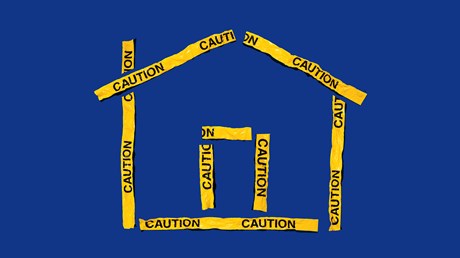Our culture values self-protection. But true love demands that we move toward each other.

One particular argument will figure in our family lore for generations: the adults upstairs, lancing one another with loud accusations, while the children downstairs slowly realized the holiday movie, planned for the afternoon, would not be.
Years later, I can’t remember the reasons for our conflict among extended family members. I only know the conditions were right. The “most wonderful time of the year” was upon us, and expectations were at a fever pitch.
It’s a risky business, this thing we call love. Unfortunately, in our cultural environment today—when personal safety is prized so highly—I fear we grow less and less tolerant for the normal bruising that happens in the contact sport of human relationships. We will love insofar as we are never hurt.
A quick swipe through social media reveals a lot of relationship advice centered on self-protection. We are taught to be vigilant against injustice, to repudiate toxicity, and to avoid situations that make us feel unsafe. The law of no trespass has become inviolable.
To be clear, I celebrate the growing emphasis on accountability. It is good and right to protect victims from abusers, and I welcome the more precise ways we’ve come to name the violations of human trust. Importantly, the Christian gospel never diminishes the trauma of sin and the necessity of repair. With a crucified Messiah at its very center—a scapegoat made to suffer for the sins of the world—it is a story that upholds the necessity of justice.
Still, I worry we are growing unrealistic in our expectations for human relationships. We seek safety, by which we often mean invulnerability. We imagine that incurring wounds in a relationship signals reasons to quit, ...
from Christianity Today Magazine
Umn ministry


.gif)

.gif)
.gif)
